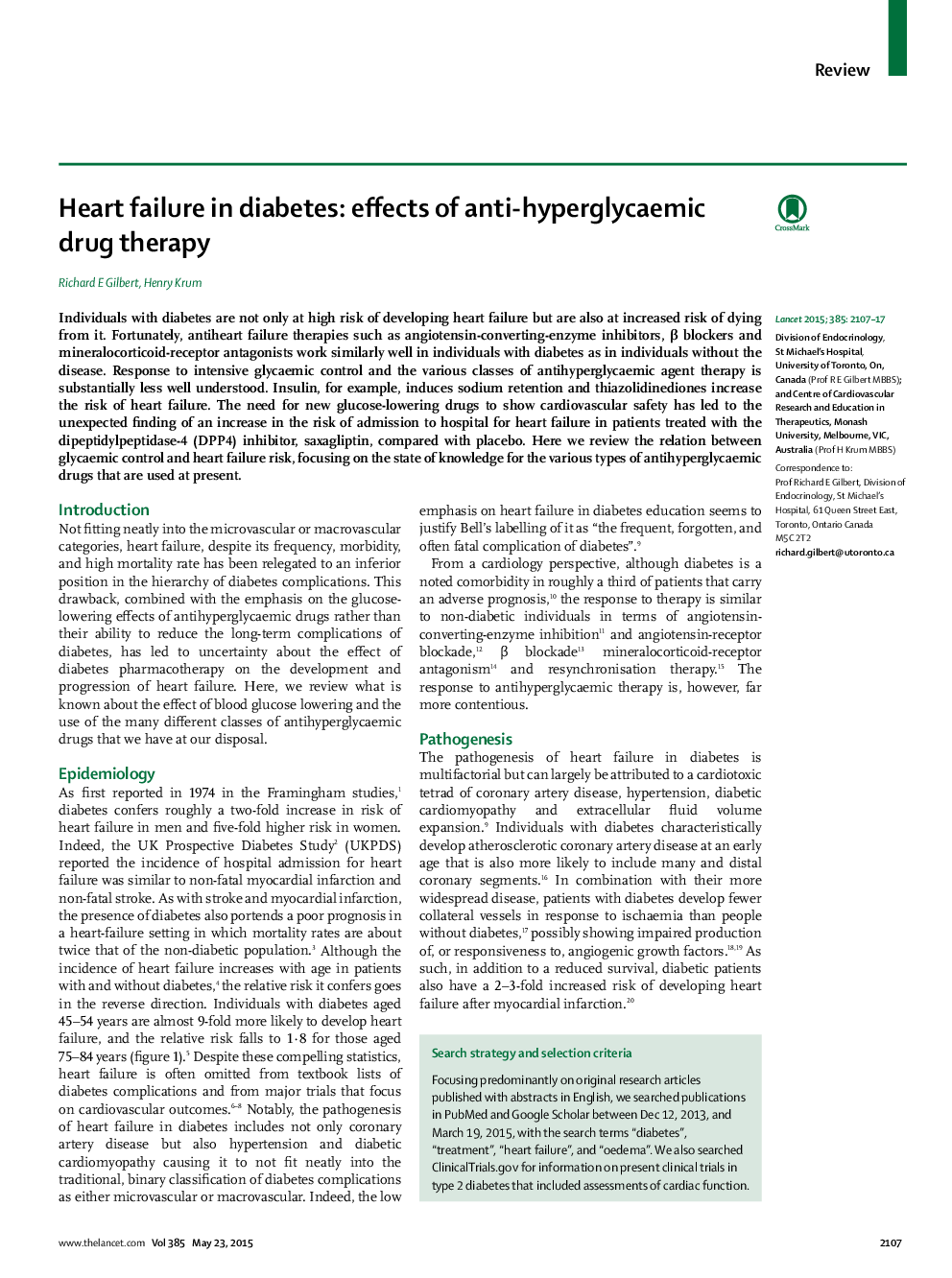| Article ID | Journal | Published Year | Pages | File Type |
|---|---|---|---|---|
| 3488838 | The Lancet | 2015 | 11 Pages |
SummaryIndividuals with diabetes are not only at high risk of developing heart failure but are also at increased risk of dying from it. Fortunately, antiheart failure therapies such as angiotensin-converting-enzyme inhibitors, β blockers and mineralocorticoid-receptor antagonists work similarly well in individuals with diabetes as in individuals without the disease. Response to intensive glycaemic control and the various classes of antihyperglycaemic agent therapy is substantially less well understood. Insulin, for example, induces sodium retention and thiazolidinediones increase the risk of heart failure. The need for new glucose-lowering drugs to show cardiovascular safety has led to the unexpected finding of an increase in the risk of admission to hospital for heart failure in patients treated with the dipeptidylpeptidase-4 (DPP4) inhibitor, saxagliptin, compared with placebo. Here we review the relation between glycaemic control and heart failure risk, focusing on the state of knowledge for the various types of antihyperglycaemic drugs that are used at present.
